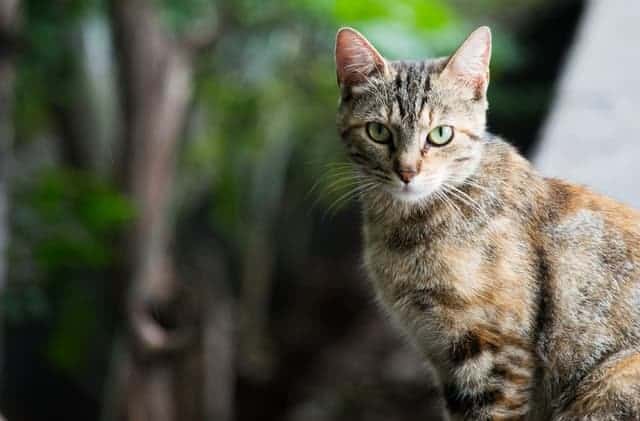Felines can also suffer from “mental” pathologies. Let’s see together what are the psychological diseases that we can find in cats.

When a cat is not in good health, we can easily understand it by observing various symptoms that the cat presents, such as: sneezing, coughing, diarrhea, vomiting.
However, cats can often suffer from psychological illnesses and sometimes we realize it too late. Below we will see which are the main psychological diseases of the cat and how we can recognize them.
Psychological diseases in cats: here are what they are

Very often, if a cat has a behavioural disorder, they may be suffering from a psychological illness.
There are three main psychological diseases that can affect a feline, here are what they are.
Depression
The main psychological pathology that can affect a feline is depression. Very often a cat with this pathology is confused with a quiet cat, as a depressed cat:
- He sleeps a lot;
- He is apathetic;
- It does not wash;
- It gets irritated easily.
Usually a cat becomes depressed when there is a change in his daily routine.
So he may have these symptoms due to a move, feeling lonely, missing a family member, or even a lack of stimulation.
In the event that your four-legged friend exhibits any of the symptoms listed above, it is advisable to contact your veterinarian.
Epilepsy
The epilepsy in cats is more than a psychological disorder, neurological and presenting with seizures. If our furry friend has this disease, we may initially notice anxiety and fear in him.
In addition, the cat can meow a lot, become hyperactive and disoriented.
Epilepsy in cats can be hereditary, it can be idiomatic, meaning the cause is unknown, or it can be caused by a blow to the head or an accident.
To find out what causes epilepsy in your cat and what is the right treatment, you need to contact your veterinarian.
Stress
Even the stress belongs to the category of the most common psychological disorders in cats.
This pathology, if not caught in time, can damage the cat’s health as it affects its immune system.
The main symptoms of a stressed cat are:
- Excessive cleaning;
- Aggression towards the owner;
- Hyperactivity;
- Excessive meowing
- Lethargy
- Loss of appetite in the cat ;
- The cat goes to the toilet outside the litter box.
All of these symptoms can be caused by various stressors in the cat, such as: a dirty litter box, the presence of another disease, fright or even trauma.
In the event that the cat exhibits the signs listed above, it is advisable, to preserve the cat’s health, to contact a veterinarian.






